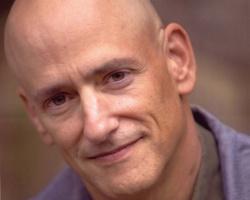Related Links: If We Survive (Excerpt 1); If We Survive (Excerpt 2)
YouthWorker Journal: Where do the ideas for your stories come from; and in particular, how did If We Survive develop?
Andrew Klavan: I’m never sure where ideas come from. Ideas for stories are sort of what you start with—they’re the reason you become a writer. I do remember we traveled a lot when my kids were little, sometimes in some pretty unstable areas. Once we went to Kenya on safari and it was amazing; but about six months after we left, the country went through some tough times. Some bandits came through and killed a lot of the people on the very same tour we’d been on six months before. I remember thinking about that a lot, how quickly things can go bad. What would you do, if you were stuck there—just an ordinary guy surrounded by danger? So that may have been a catalyst.
YWJ: Is there a common thread/theme that runs through your novels?
Klavan: I’ve always been interested in that place inside a person where moral decisions are made, that part of your mind that just somehow knows right from wrong. A lot of people say it’s cultural or psychological, that what’s right for one person might be wrong for another, and sure, there are occasional areas where that can be true; but at the core of human life, at the heart of individuals, I think there’s something different and mysterious: a place that is capable of making decisions for the good, even when your country or your church or your mom gets it wrong. How do you know when that’s real? How do you know when you’re being misled by your heart and when your heart is hearing the voices of the angels? Very tough question sometimes—it makes for great drama!
YWJ: Why is it important to you that faith be an integral part of the books you write?
Klavan: Really only one reason: because I’m a realist. I came to faith late, so I had a lot of time to think it over. In the end, I don’t think you can make any sense of the human experience without a belief in that mysterious moral heart in all of us—which, in turn, implies a loving Creator in whose image we’re made. Two philosophers sitting in an ivory tower can talk themselves out of it, but I’m a novelist. I have to create characters who live and breathe in something akin to the real world, and I can’t do that without putting them in a moral universe—our universe—a universe that faith understands better than atheism.
YWJ: In what way(s) does If We Survive address the concept of leadership, particularly among young people?
Klavan: In a way, it’s all about leadership. It’s about the kind of hero who can make decisions when there’s no good option, when people are going to blame him no matter what he does, and when something bad is going to happen no matter what course he takes. I mean, it’s easy to lead when everyone’s cheering and everyone thinks he knows what’s right, but If We Survive is about four kids caught up in a war, and the kind of man they need to lead them to safety is not necessarily the kind of man with whom you feel comfortable. His name is Palmer Dunn; and he’s a very tough individual, a man who knows how to kill, a man who knows that sometimes there are no clear good guys or bad guys, but you have to fight to survive anyway. The narrator, a kid named Will Peterson, starts out thinking of himself as an ordinary high school student; but as he watches Palmer, as he shares in some of his really hard and dangerous decisions, he begins to wonder if maybe he’s not a leader, too. So much of leadership, I think, is coming to understand the world doesn’t always work the way we wish it would. That’s something you can only learn by experience—and the novel is about that kind of experience.
Related Links: If We Survive (Excerpt 1); If We Survive (Excerpt 2)
Andrew Klavan was hailed by Stephen King as “the most original novelist of crime and suspense since Cornell Woolrich.” He is the recipient of two Edgar Awards and the author of such bestsellers as True Crime and Don’t Say a Word. His next novel, Nightmare City, will release in November 2013.




